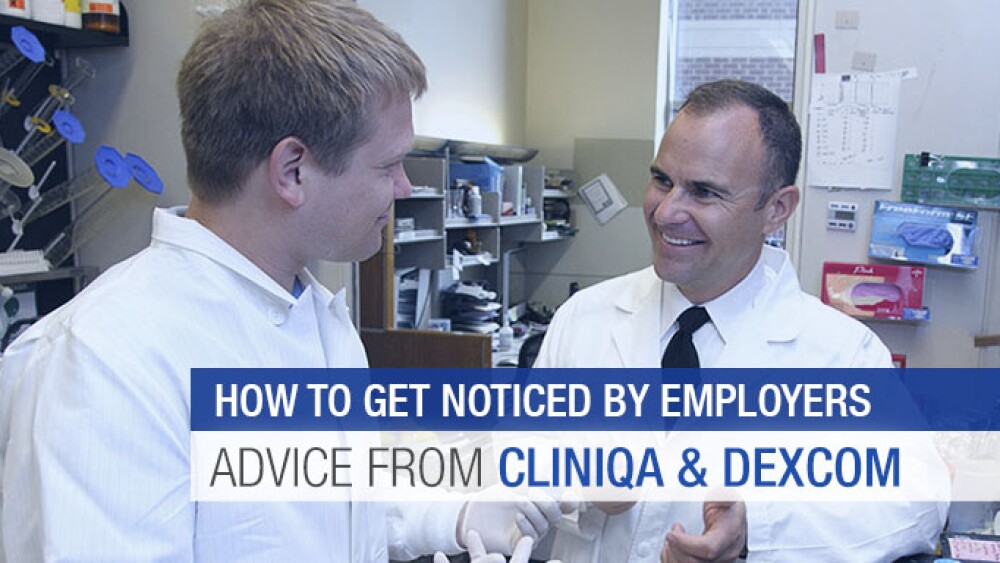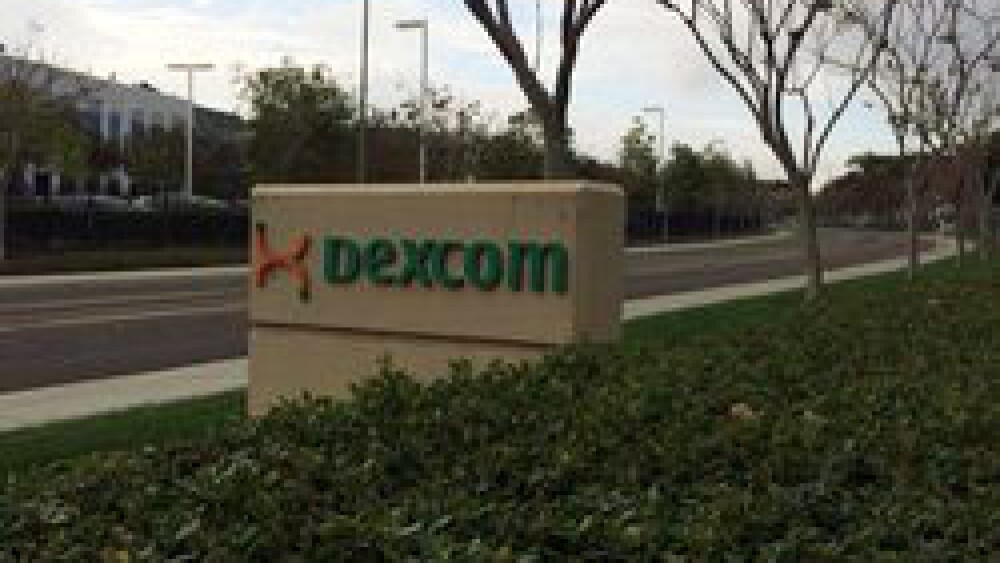December 18, 2014
By Riley McDermid, BioSpace.com Breaking News Sr. Editor
Biotech hiring is roaring back after a boom year on the capital markets left many biotechs flush with cash. That means more hiring—and more competition for the jobs you may be attempting to get. Want to make yourself stand out from the word “go”?
BioSpace interviewed Laura Henderson, head of human resources at CLINIQA Corporation, a clinical diagnostics company, and Rachel Williams, head of talent management at medical device Dexcom. They gave us the inside track on how to get noticed from that first contact to the last.
The perfect cover letter.
A cover letter should be viewed as your first impression on any prospective employer. Long before you step in the door—and often before they’ve even glanced at your resume—a cover letter gives a hiring manager a brief snapshot of who you are, what goals you have and how you might be a good fit.”
A great cover letter is important! If you read the job description it will often tell you the key attributes the company is looking for. Your cover letter is the place to emphasize these,” said Henderson.
You should also keep in mind that although you may be happy to apply to jobs outside of your immediate area, employers are often leery of looking at the perfect candidate’s cover letter, only to find they are located somewhere else.
“Are you relocating to the area and don’t need relocation assistance? Otherwise we may discard your resume if we are only looking for local candidates,” said Henderson.
Don’t be afraid to mention in your cover letter how you found out about the job and what makes you unique from other candidates who might be applying simultaneously. If you have specific connections or expertise, mention those at the beginning.
“Were you referred by an employee? This is the spot to name drop!” said Henderson. “Do you have experience with that niche software my company uses? Your cover letter tells me why I should read your resume.”
Build a killer resume.
The right resume can make the difference between you getting called in for a face-to-face interview or your entire job bid being thrown in the trash. If you don’t have a clear, concise, easy-to-read resume, most HR professionals are just going to glance at it once before moving on.
“Your resume needs to look perfect! The formatting is important. Make it easy for me to read with bullets, bold, tabs and spacing,” said Henderson. “Draw my eyes to the important points. Keep it short. I prefer one page or two at the most. Put your highlights only, not sentences or paragraphs. Make sure there are no mistakes.”
Williams said keeping a resume short and sweet is more likely to catch the eye of someone who is hiring.
“The general rule of “less is more” is often the case with making resumes more effective,” said Williams. “The purpose of the resume is just to get the conversation started so be succinct in describing your experience and accomplishments.
Be prepared.
If and when you do get called in for an interview, make sure you know what you’re getting yourself into. HR professionals are trained to know when a candidate is the real deal, or if they are just “company shopping” in an attempt to get themselves into any job, anywhere.
“Show me that you have done your research and you know about our company and what we do. It is not hard to anticipate interview questions,” said Henderson. “Be ready with specific examples about scenario questions.”
Bring along examples of work you’ve done that is similar to what they do every day. It doesn’t need to be a massive project, said experts, as long as it taps into what your skill set is and how it could apply to the job you are currently trying to get.
“Bring physical work samples of a memo you wrote, an email you received complimenting your work, a spreadsheet you created, a program you implemented (but block out any confidential information),” said Henderson. “Learn the names, positions and background of the people you are interviewing with ahead of time.”
Being familiar with the biographies and skills of your interviewing panel is also a sign that you take the interview, and by association, the job, seriously.
“Be sure you know ahead of time everyone you’ll be interviewing with. Find out their titles and areas of responsibility,” said Williams. “Take time to prepare and offer a prompt follow-up to those you interviewed with.”
Stay relaxed and confident.
If facing a panel of strangers peppering you with questions sounds stressful, now is a good time to practice some relaxation techniques so you stay on topic and are able to let your true colors shine through.
“Be authentic. As you speak about your experience and accomplishments, be honest about what matters to you and why,” said Cliniqa’s Williams. “Listen for an alignment of values, yours and the company’s, to ensure it’s a good fit. The interviewees will be listening for the same.”
And if you don’t know something, don’t be afraid to speak up.
“Ask amazing questions. Show me that you are a smart professional with educated questions about your field and how you would do your job in our company,” said Henderson.
The clincher.
After you’ve finished your interview, make sure to let your interviewers know that you appreciate their time.
“Folllow up. Send a thank you note or email with a recap of the reasons why you are the best candidate. Send one to everyone you interviewed with,” said Henderson.
Check out the latest Career Insider eNewsletter - December 18, 2014.
Sign up for the free weekly Career Insider eNewsletter.






